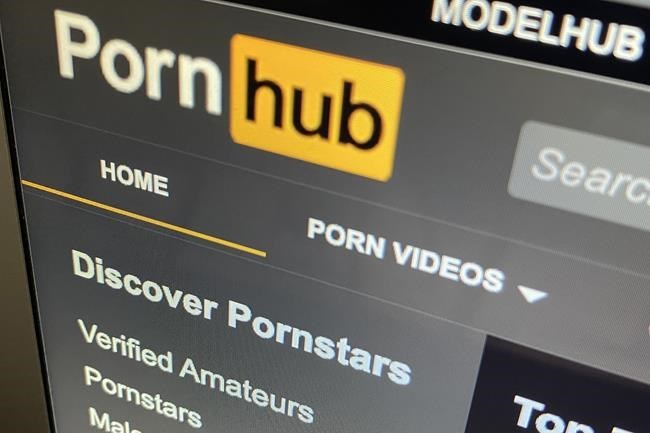MONTREAL — Pornhub and several affiliated companies have settled a lawsuit brought by 50 women who alleged it profited from pornographic videos published without their full consent.
"The parties reached a mutual resolution to resolve the dispute and the terms are confidential," Brian Holm, the lawyer for the plaintiffs, wrote in an email.
The lawsuit filed last December in U.S. district court in California alleged that MindGeek, parent company of Pornhub, knew or should have known that one of its commercial partners regularly used fraud and coercion to get women to appear in videos.
The lawsuit initially involved 40 women, including three Canadians, but it was later expanded to include 10 additional women and other businesses connected to MindGeek were added as defendants.
The original court filing alleged that MindGeek did not end a partnership with GirlsDoPorn until that company's operators were charged by U.S. authorities in November 2019.
Earlier this month, the U.S. Federal Bureau of Investigation launched a new public appeal for information, offering a reward of up to $50,000 for information leading to the arrest Michael James Pratt, one of the owners of GirlsDoPorn.
According to the FBI, three other people involved with GirlsDoPorn have pleaded guilty to sex trafficking charges, while two more are awaiting trial.
Authorities allege that women were recruited to participate in videos under false pretences and told that pornographic videos would never be posted online or released in the U.S.
However, the site's operators planned to post the videos on their website, where viewers could pay to watch, with excerpts appearing on free sites, such as Pornhub, according to admissions made as part of the guilty pleas.
Women were also pressured to participate in sex acts that they did not want and paid less than they had been promised, one of GirlsDoPorn's operators, Ruben Andre Garcia, admitted when he pleaded guilty in November.
In June, Garcia was sentenced to 20 years in a U.S. federal prison.
According to the lawsuit, MindGeek and GirlsDoPorn entered into a partnership in 2011. The deal allegedly allowed videos created by GirlsDoPorn to be hosted on MindGeek's sites, such as Pornhub.
The lawsuit also claimed that MindGeek-owned websites did not remove videos when requested by the women who appeared in them. In some of those requests, the women explicitly stated that they were coerced, the suit alleged.
In January 2020, a California state court awarded 22 women who had appeared in GirlsDoPorn videos nearly US$13 million in damages.
While MindGeek is legally headquartered in Luxembourg, its main office is in Montreal.
The company confirmed that a settlement had been reached and said that the details were confidential.
"MindGeek has zero tolerance for the posting of illegal content on its platforms, and has instituted a comprehensive, industry-leading trust and safety policy to identify and eradicate any illegal material from its community," the company said in an unsigned statement.
A joint request to dismiss the suit was filed with the court on Oct. 15.
MindGeek also faces a class-action lawsuit involving 30 women that was filed in another California federal court in June.
This report by The Canadian Press was first published Oct. 21, 2021.
———
This story was produced with the financial assistance of the Facebook and Canadian Press News Fellowship.
Jacob Serebrin, The Canadian Press


